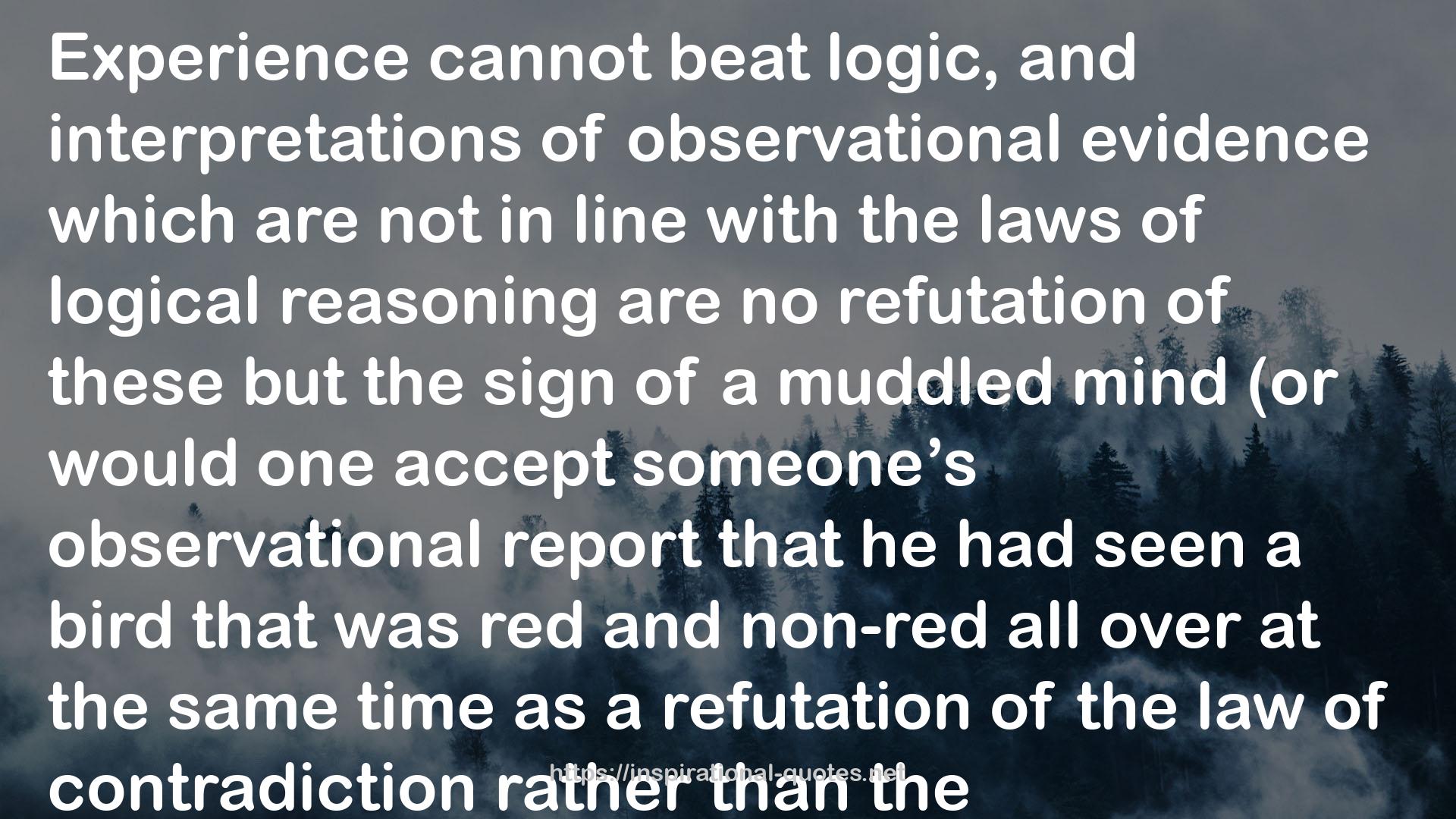2
" So what? Why should an a priori proof of the libertarian property theory make any difference? Why not engage in aggression anyway?” Why indeed?! But then, why should the proof that 1+1=2 make any difference? One certainly can still act on the belief that 1+1=3. The obvious answer is “because a propositional justification exists for doing one thing, but not for doing another.” But why should we be reasonable, is the next come-back. Again, the answer is obvious. For one, because it would be impossible to argue against it; and further, because the proponent raising this question would already affirm the use of reason in his act of questioning it. This still might not suffice and everyone knows that it would not, for even if the libertarian ethic and argumentative reasoning must be regarded as ultimately justified, this still does not preclude that people will act on the basis of unjustified beliefs either because they don’t know, they don’t care, or they prefer not to know. I fail to see why this should be surprising or make the proof somehow defective. "
― Hans-Hermann Hoppe , The Economics and Ethics of Private Property: Studies in Political Economy and Philosophy
3
" The traditional, correct pre-Marxist view on exploitation was that of radical laissez-faire liberalism as espoused by, for instance, Charles Comte and Charles Dunoyer. According to them, antagonistic interests do not exist between capitalists, as owners of factors of production, and laborers, but between, on the one hand, the producers in society, i.e., homesteaders, producers and contractors, including businessmen as well as workers, and on the other hand, those who acquire wealth non-productively and/or non-contractually, i.e., the state and state-privileged groups, such as feudal landlords. "
― Hans-Hermann Hoppe , The Economics and Ethics of Private Property: Studies in Political Economy and Philosophy
5
" Incidentally, the same logic that would force one to accept the idea of the production of security by private business as economically the best solution to the problem of consumer satisfaction also forces one, so far as moral-ideological positions are concerned, to abandon the political theory of classical liberalism and take the small but nevertheless decisive step (from there) to the theory of libertarianism, or private property anarchism. Classical liberalism, with Ludwig von Mises as its foremost representative in the twentieth century, advocates a social system based on the nonaggression principle. And this is also what libertarianism advocates. But classical liberalism then wants to have this principle enforced by a monopolistic agency (the government, the state)—an organization, that is, which is not exclusively dependent on voluntary, contractual support by the consumers of its respective services, but instead has the right to unilaterally determine its own income, i.e., the taxes to be imposed on consumers in order to do its job in the area of security production. Now, however plausible this might sound, it should be clear that it is inconsistent. Either the principle of nonaggression is valid, in which case the state as a privileged monopolist is immoral, or business built on and around aggression—the use of force and of noncontractual means of acquiring resources—is valid, in which case one must toss out the first theory. It is impossible to sustain both contentions and not to be inconsistent unless, of course, one could provide a principle that is more fundamental than both the nonaggression principle and the states’ right to aggressive violence and from which both, with the respective limitations regarding the domains in which they are valid, can be logically derived. However, liberalism never provided any such principle, nor will it ever be able to do so, since, to argue in favor of anything presupposes one’s right to be free of aggression. Given the fact then that the principle of nonaggression cannot be argumentatively contested as morally valid without implicitly acknowledging its validity, by force of logic one is committed to abandoning liberalism and accepting instead its more radical child: libertarianism, the philosophy of pure capitalism, which demands that the production of security be undertaken by private business too. "
― Hans-Hermann Hoppe , The Economics and Ethics of Private Property: Studies in Political Economy and Philosophy

